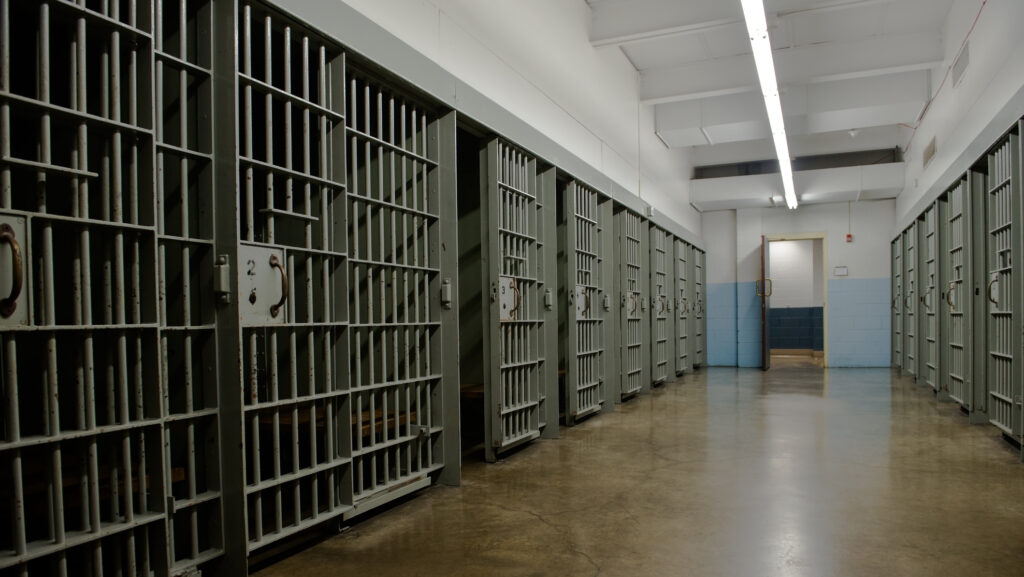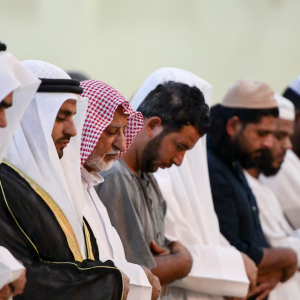Dubai resident detained in Iraq, Robert Pether, has spent more than four years behind bars in a situation that has alarmed his family, human rights advocates, and the international community. His case has become a symbol of the risks faced by foreign nationals abroad and the dire consequences of detention without proper medical care or due legal process.
Arrest and the Beginning of a Nightmare
Robert Pether, an engineer residing in Dubai, was arrested in Baghdad while working on a construction project. What began as a routine professional assignment quickly turned into a nightmare when a dispute involving contractual obligations escalated into criminal allegations. He, along with a colleague, was accused of misconduct related to project finances. Despite a lack of concrete evidence, the Iraqi judicial system sentenced him to imprisonment.
For Robert, this was the start of a long, grueling period of confinement under harsh conditions. His family recalls the shock of receiving the news of his arrest. The transition from a normal life in Dubai to a distant and unfamiliar prison in Iraq was sudden, frightening, and bewildering. The legal and logistical hurdles made it difficult for them to intervene immediately.

Life Behind Bars
During his time in prison, Robert’s health deteriorated rapidly. Reports indicate that he developed severe malnutrition, significant weight loss, and other serious health complications. Conditions in Iraqi prisons are notoriously difficult, with overcrowding, poor sanitation, and limited access to adequate medical care. These challenges took a severe toll on his physical and mental well-being.
His family describes him as a “broken man,” physically weakened and emotionally exhausted. Daily life in the prison involved exposure to extreme heat during the day, cold nights, and limited food and water. Medical treatment, when available, was often delayed or inadequate, worsening his already critical condition.

Conditional Release: Temporary Relief
After more than four years of imprisonment, Robert was granted a conditional release. While this provided a temporary reprieve from life inside prison walls, it was far from a complete resolution. He remains in Iraq under a strict travel ban, unable to return to Dubai or reunite with his family. The legal uncertainty continues to weigh heavily on him, and the prospect of returning to prison remains a terrifying possibility.
The conditional release has been a mixed blessing. On one hand, it allows Robert to leave the prison environment, which has been detrimental to his health. On the other, he is still trapped within the country, facing ongoing restrictions and uncertainty about his future. The emotional toll on him and his loved ones has been profound.
Legal Challenges and International Implications
The case of Robert Pether illustrates the complex intersection of international law, human rights, and diplomatic intervention. Foreign nationals imprisoned abroad often face legal systems that operate under different standards from those in their home countries. This disparity can lead to prolonged detention, lack of transparency, and limited avenues for appeal or intervention.
In Robert’s situation, the possibility of returning to prison due to unresolved legal matters remains real. His family is actively seeking legal solutions to secure full exoneration and safe passage home. However, navigating the legal and bureaucratic systems in Iraq is complicated, especially for someone without local citizenship or political leverage.

Human Rights Concerns
Robert’s story is emblematic of broader human rights issues. Detention without proper medical care or legal representation raises serious ethical and legal questions. International human rights advocates have repeatedly warned about the conditions faced by foreign prisoners in countries where judicial systems may not offer sufficient safeguards.
In Robert’s case, the potential life-threatening consequences of being returned to prison underscore the urgency of intervention. His deteriorating health highlights the moral and humanitarian responsibility of authorities to ensure that detainees receive adequate medical care and humane treatment.
Family’s Struggle and Appeal
Throughout this ordeal, Robert’s wife and family have been vocal advocates for his release and well-being. They describe the experience as excruciating, watching a loved one suffer thousands of miles away with limited means to help. They have made continuous appeals for intervention, emphasizing that Robert’s health is critically fragile and that returning him to prison could be fatal.
The family’s struggle underscores the emotional impact of long-term detention on relatives. They face the uncertainty of not knowing when or if their loved one will safely return. Their advocacy also reflects a broader concern for the rights and safety of foreign nationals detained in unfamiliar legal systems.
Psychological Toll and Social Impact
The effects of prolonged imprisonment extend beyond physical health. Psychological trauma is a significant concern for individuals in such situations. Anxiety, depression, and post-traumatic stress are common among long-term detainees. Robert’s family reports signs of emotional distress, including fear, confusion, and despair, which further complicate his recovery.
Moreover, the social implications for families are profound. Loved ones face isolation, stigma, and financial strain as they try to navigate legal systems, manage communications, and provide support from afar. In many cases, family members also experience emotional burnout due to prolonged stress and uncertainty.
International Attention and Advocacy
Robert Pether’s case has garnered attention from human rights organizations and diplomatic channels. Advocacy efforts highlight the need for international cooperation in cases involving foreign nationals detained abroad. The case serves as a reminder of the importance of safeguarding human rights, regardless of national borders.
Experts emphasize that preventive measures, including clear legal protocols, access to consular services, and emergency medical care, are essential for protecting foreign nationals. Robert’s situation has become a call to action for governments, NGOs, and international organizations to prioritize the safety and dignity of detainees.

A Path Forward
The ultimate goal for Robert and his family is to secure his safe return to Dubai. Achieving this requires navigating complex legal frameworks, engaging diplomatic channels, and ensuring his medical needs are met. While challenges remain, conditional release provides a foundation for continued efforts.
The international community’s response to Robert’s plight may also set important precedents. His case highlights the need for better systems to protect foreign residents working abroad, prevent arbitrary detention, and provide humanitarian aid in life-threatening situations.
Lessons Learned
Robert Pether’s experience offers several critical lessons:
- Importance of Legal Awareness: Foreign nationals must understand the legal systems of the countries where they work or reside. Knowledge of local laws, contracts, and potential risks is crucial.
- Human Rights Protections: Governments and international bodies need mechanisms to protect the rights of foreign detainees, including access to fair trials and adequate medical care.
- Family Support and Advocacy: Families play a vital role in advocating for the rights and well-being of detainees, especially in cross-border situations.
- Medical Urgency: The health of detainees must be prioritized to prevent preventable deaths and ensure humane treatment.
- Diplomatic Intervention: Cases involving foreign nationals often require diplomatic engagement to resolve legal, medical, and humanitarian challenges effectively.
Conclusion: A Fight for Life and Justice
Dubai resident detained in Iraq, Robert Pether, represents more than a single case of imprisonment abroad. His story reflects systemic challenges faced by foreign nationals in unfamiliar legal and political environments. It underscores the necessity of international cooperation, robust legal safeguards, and humanitarian care to prevent such crises.
As Robert continues to navigate his conditional release and uncertain future, his family’s hope remains steadfast. Their advocacy, combined with growing international awareness, offers the best chance for a resolution that preserves his health, dignity, and freedom. The ultimate hope is that he will be reunited with his family in Dubai, safe from further harm, and able to rebuild his life after years of suffering.
The story of Robert Pether is a reminder that human dignity must remain a priority, even in complex legal and political circumstances. It also calls on authorities, communities, and the global audience to recognize the stakes when individuals face life-threatening conditions due to prolonged detention abroad.
Do follow UAE Stories on Instagram
Read Next – Abu Dhabi Launches AI-Driven Waste Collection Company in Sustainability Drive












